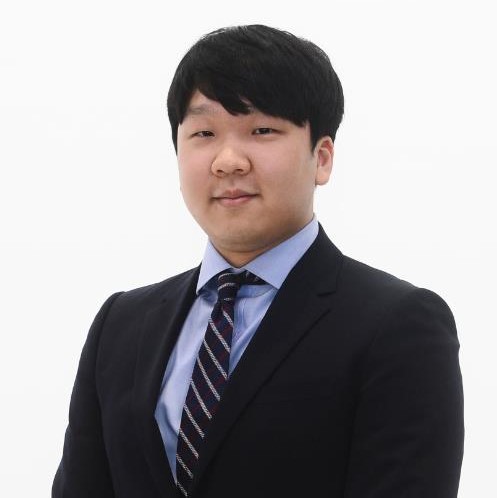[Herald Interview] 'Hanok hotels offer more than a one-night stay'
Butler.Lee CEO Lee Dong-woo shares possibilities and challenges in managing hanok hotels
By Lee Si-jinPublished : Oct. 16, 2024 - 19:13

Since his decision to start a part-time job at a local guest house in the bustling neighborhood of Hongdae as a university student in 2017, Lee Dong-woo -- CEO of the hanok stay platform Butler.Lee -- knew that he had a great passion for the hospitality business.
“I felt that offering other people a place to sleep meant something special,” Lee said in an interview with The Korea Herald at Bukchon Lounge in Jongno-gu, central Seoul on Oct. 10.
As a former music major at Korea National University of Arts, the young CEO thought that providing hotel services was similar in some ways to music.
Just as a musician needs to spend a huge amount of time preparing to perform for an audience, hotel managers have to put their utmost effort into providing their guests with satisfying one-night stays, according to Lee.
“Handling hotel rooms -- a very personal, sensitive and complex area -- and meeting the pickiest guests’ expectations are challenging tasks, but witnessing their satisfaction is to me something unrivaled by anything in the world,” Lee said.
Living the life he always wanted as a hanok hotel CEO, Lee manages almost 40 hanoks, which are mainly located in the iconic tourist destination of Bukchon Hanok Village.
Having communicated with countless local and overseas guests, Lee felt that the hanok experience could be expanded.
“Many tourists who come to Butler.Lee to stay in a hanok are extraordinarily interested in cultural experiences, ranging from food and popular travel spots to special learning opportunities and daily Korean life. This is why we began to organize a range of cultural activities,” he explained.


Since its opening in 2021, Butler.Lee has presented trekking excursions, tea ceremonies, Korean classes, special tours with culture guides and other programs.
Lee was surprised to witness how excited the tourists were to immerse themselves in Korean culture.
“Though the programs cost extra, almost all Butler.Lee guests were applying for our programs without hesitation,” he said, adding that this led the company to prepare for more.
Recognizing that a growing number of holidaymakers wish to experience daily life where they stay in the form of a “hocance” -- a Korean neologism meaning vacationing in a hotel not far from home -- the passionate hotel operator offers one-day experiences such as cooking classes at his hanok properties.
Lee’s major concern is the breakfast service.
“Individual hanok buildings are private homes, meaning Butler.Lee properties don’t have facilities like those at hotel restaurants. I am well aware that guests who love Korean culture want to taste authentic Korean cuisine, like rice with soup,” he said.
Hoping to satisfy this desire to experience Korean food culture, Lee shared that he plans to collaborate with local restaurants via delivery services.
From architectural regulations to maintenance and parking, Lee feels that hanok stay businesses have more to worry about than some other hotels and resorts.
But all the worry, he finds, is worth it.
“Unlike hanok-themed shops, restaurants and cafes, hanok hotels are strictly bound by the country’s hanok architectural regulations because they are considered assets to be preserved. Even the smallest details of giwa -- traditional Korean hanok roof tiles -- are assessed when starting up a hanok hotel business,” Lee explained.
“The process is very tough in terms of the time and money invested in a single hanok. But, guests can have a truly traditional Korean experience. And we are preserving our beautiful culture as well,” he said.
Lee also expressed interest in restoring and preserving more abandoned hanoks in areas outside the capital, which might help to bring more tourists to the lesser-known, yet charming travel spots outside of Seoul.





![[Herald Interview] How Gopizza got big in India](http://res.heraldm.com/phpwas/restmb_idxmake.php?idx=644&simg=/content/image/2024/11/20/20241120050057_0.jpg&u=20241120164556)

![[KH Explains] Dissecting Hyundai Motor's lobbying in US](http://res.heraldm.com/phpwas/restmb_idxmake.php?idx=644&simg=/content/image/2024/11/20/20241120050034_0.jpg&u=)

![[Kim Seong-kon] Farewell to the vanishing John Wayne era](http://res.heraldm.com/phpwas/restmb_idxmake.php?idx=644&simg=/content/image/2024/11/19/20241119050096_0.jpg&u=)
![[Graphic News] 70% of S. Koreans believe couples can live together without tying the knot: survey](http://res.heraldm.com/phpwas/restmb_idxmake.php?idx=644&simg=/content/image/2024/11/19/20241119050098_0.gif&u=)







![[Today’s K-pop] Blackpink’s Jennie, Lisa invited to Coachella as solo acts](http://res.heraldm.com/phpwas/restmb_idxmake.php?idx=642&simg=/content/image/2024/11/21/20241121050099_0.jpg&u=20241121172748)